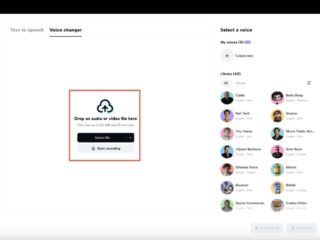
In today’s digital landscape, personalization is not just a trend but a cornerstone of consumer experience. The shift towards tailor-made experiences reflects a deeper understanding of customer behavior and preferences, empowered by advanced technologies such as Artificial Intelligence (AI) and Machine Learning (ML).
This article delves into how these innovations are reshaping the interaction between digital platforms and users, offering insights through case studies of businesses at the forefront of this transformation and highlighting the critical role of personalized content in digital marketing strategies.
The Role of AI and Machine Learning
At the heart of customised user experiences is the sophisticated use of AI and ML algorithms. These technologies analyze vast amounts of data, identifying user patterns and preferences.
By understanding the behaviors and interests of individuals, digital platforms can offer recommendations, content, and services uniquely tailored to each user. It not only enhances the user experience but also significantly boosts engagement rates.
AI-driven personalization extends across various digital interactions, from e-commerce recommendations to personalized news feeds and targeted advertisements.
For instance, streaming services like Netflix and Spotify use sophisticated algorithms to analyze user preferences, watch history, and listening habits to suggest shows, movies, and music likely to appeal to individual tastes.
Success Stories in Personalization
Several businesses have set benchmarks in utilizing technology for personalization, demonstrating substantial benefits in customer satisfaction and business growth. Amazon’s recommendation engine is a prime example, offering suggestions based on previous purchases, search history, and items in the shopping cart. This personalized approach improves the shopping experience and increases sales by encouraging additional purchases.
Another notable example is Starbucks’ use of its mobile app to offer customised ordering. The app suggests orders based on past purchases, time of day, and the user’s location, creating a highly personalized and convenient customer experience that drives loyalty and sales.
Personalization in Digital Marketing
Personalized content is pivotal in digital marketing strategies, significantly impacting engagement and conversion rates.
Businesses can forge stronger connections and encourage more meaningful interactions by delivering content that resonates personally with consumers. Personalization strategies can range from customized email marketing campaigns to tailored website content and targeted ads.
Email marketing, for example, has seen a revolution in personalization. Businesses that send emails based on user behavior and preferences report higher open and click-through rates than those that send generic content.
This level of personalization makes the recipient feel understood and valued, increasing the likelihood of engagement and conversion.
Midway through exploring personalization in digital experiences, it’s crucial to recognize innovative platforms leading the way in this space.
The sapphire studios platform exemplifies how technology can be harnessed to create highly personalized and engaging digital experiences. Their approach underlines the importance of leveraging advanced tech to meet consumer expectations for tailor-made content and interactions.
Methodologies Behind Personalization
Creating a personalized experience goes beyond simply analyzing user data; it involves a sophisticated orchestration of various technologies and methods. Machine Learning models are at the forefront, learning from each interaction to improve future recommendations.
Natural Language Processing (NLP) is used to understand and interpret user queries or preferences in text form, enabling platforms to deliver more accurate and relevant responses.
Predictive analytics play a crucial role, using historical data to predict future behavior, preferences, and needs. It helps tailor the user experience and inventory management for e-commerce platforms, anticipating demand based on individual user behavior patterns.
Privacy and Ethical Considerations
As businesses delve deeper into personalization, the issue of privacy and ethical use of data becomes increasingly important. Users are becoming more aware of the value and sensitivity of their personal information.
Consequently, businesses must navigate the fine line between delivering personalized experiences and respecting user privacy. Transparency about data use, robust data protection measures, and adherence to regulations like GDPR are crucial for maintaining user trust and loyalty.
Privacy-enhancing technologies (PETs), such as encryption and anonymization techniques, ensure that user data can be used for personalization without compromising individual privacy.
Businesses are also exploring the concept of data minimization, which involves collecting only the data necessary for the intended purpose, thereby reducing the potential for privacy breaches.
Hyper-personalization
Beyond predictive personalization lies hyper-personalization, where every aspect of the customer experience is customized to the individual’s preferences, behaviors, and context.
Hyper-personalization relies on real-time data and advanced analytics to deliver personalized experiences.
It could mean customised shopping experiences that adjust in real-time based on how the user interacts with an e-commerce site or personalized content feeds that dynamically change based on current user interests and external factors such as time of day or location.
The Intersection of Personalization and Decentralization
The decentralized web, or Web3, introduces a paradigm shift in storing and managing personal data, with blockchain technology offering a path to more secure and user-controlled data.
This evolution presents a unique opportunity for personalization, where users have greater control over their data and can selectively grant access to platforms for personalized experiences.
This model enhances privacy and security and empowers users to tailor their digital interactions according to their preferences and comfort levels, paving the way for a more transparent and equitable digital ecosystem.
The Future Landscape of Personalized Technology
Looking ahead, you can expect the landscape of personalized technology to become even more integrated into our daily lives. The Internet of Things (IoT) promises a future where everyday objects will offer personalized experiences, from smart refrigerators suggesting recipes based on what’s inside to cars adjusting the driving settings according to the driver’s preferences.
As 5G technology becomes more widespread, the increased connectivity and speed will enable more complex and real-time personalization, opening up new avenues for personalized experiences seamlessly integrated into daily life’s fabric.
Conclusion
The art of personalization in technology is a dynamic and evolving field, reflecting the growing desire for more personalized, meaningful interactions in the digital space.
As businesses continue to innovate and leverage AI, ML, and other technologies to craft unique consumer experiences, balancing personalization with privacy and ethical considerations becomes paramount.
As we look to the future, the possibilities for personalization are boundless, limited only by the creativity of businesses and the evolving landscape of technology. However, the true art of personalization lies in technology’s ability to adapt to us and in our ability to navigate the challenges and opportunities it presents responsibly and ethically.













